Introduction
In today's digital age, e-commerce has transformed the way businesses operate. The convenience and accessibility of online shopping have made it a vital part of modern commerce. If you're an aspiring entrepreneur looking to tap into this vast market, you'll need a reliable e-commerce website. The foundation of a successful online store begins with choosing the right platform. In this comprehensive guide, we will explore the significance of platform selection and provide a detailed overview of five of the best tools available: Shopify, WooCommerce for Wordpress, Magento, Wix and GhostCMS.
Selection of the Platform
Before we delve into the specifics of each e-commerce platform, let's underline the importance of selecting the right one for your online store. Your choice of platform can significantly impact your store's performance, scalability, and overall success. Each platform comes with its unique set of features, advantages, and limitations, making the selection process a critical step in your e-commerce journey.
Overview of the Tools
Now, let's take an in-depth look at the five e-commerce tools that have been making waves in the industry:
Shopify

Description:
Shopify is a robust and user-friendly e-commerce platform that offers a wide range of features to help you create and manage your online store. With a focus on simplicity and functionality, it caters to both beginners and experienced entrepreneurs.
Advantages:
- User-friendly interface
- Extensive app store for added functionality
- Reliable hosting and security
- Excellent customer support
Disadvantages:
- Monthly subscription fees
- Limited customization options for advanced users
A Visual Tour of the Interface:
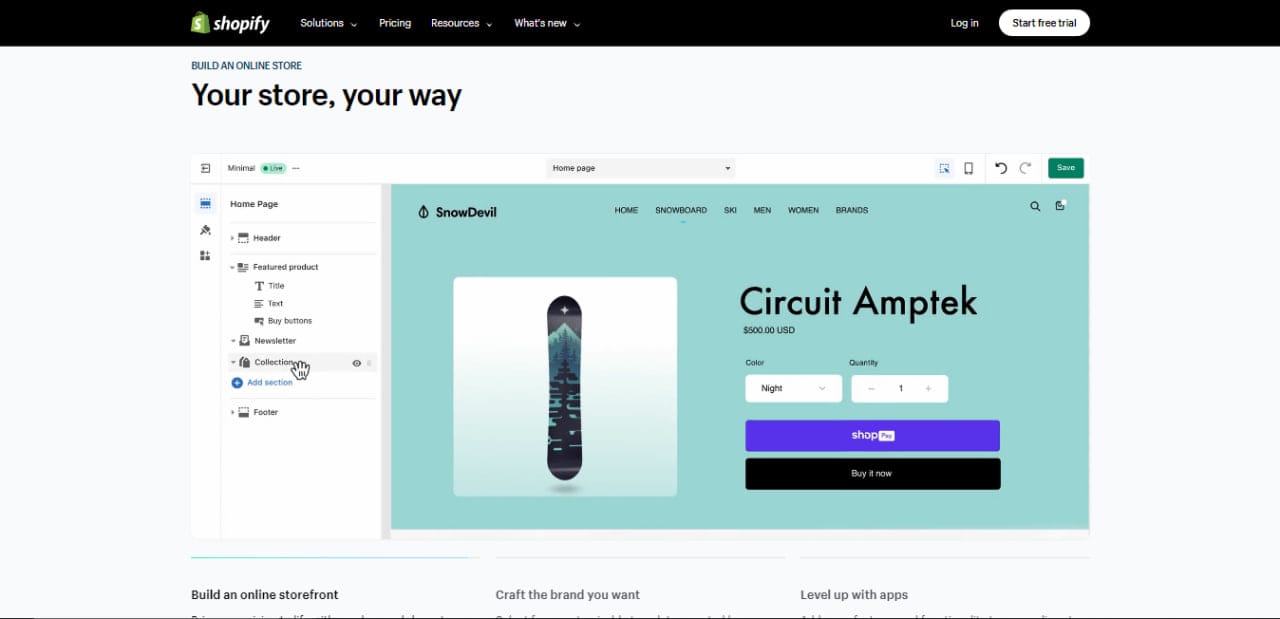
Shopify has gained immense popularity due to its simplicity and versatility. Whether you're a small business owner or a large enterprise, Shopify can accommodate your needs. The user-friendly interface allows you to set up your store quickly and efficiently. Its extensive app store provides a wide array of tools and plugins to enhance your store's functionality.
One of the standout features of Shopify is its reliable hosting and security. Your store will benefit from robust infrastructure, ensuring minimal downtime and protection against cyber threats. Additionally, Shopify offers excellent customer support, with a dedicated team ready to assist you with any issues or questions. However, it's important to note that Shopify comes with monthly subscription fees, which can add up over time. While it offers customization options, more advanced users may find themselves limited in terms of extensive customization without delving into the platform's underlying code.
WooCommerce for WordPress

Description:
WooCommerce is a powerful e-commerce plugin for WordPress, seamlessly integrating with the world's most popular content management system. It allows you to transform your WordPress site into a full-fledged online store.
Advantages:
- Open-source and customizable
- Vast array of plugins and themes
- Scalable for small to large businesses
- Cost-effective with no monthly fees
Disadvantages:
- Requires WordPress knowledge
- You are responsible for hosting and security
A Visual Tour of the Interface:
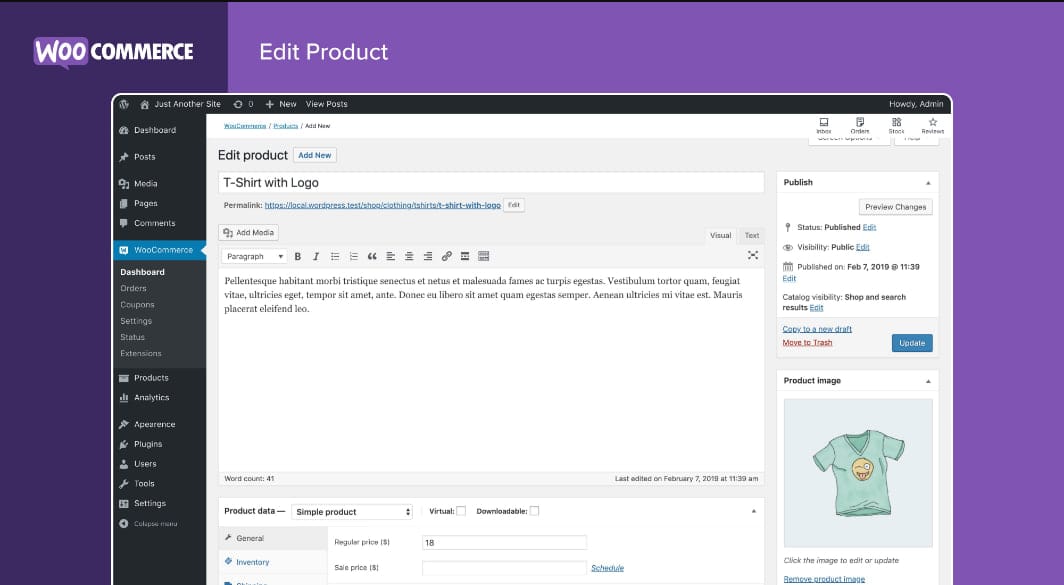
WooCommerce stands out as an open-source, highly customizable e-commerce solution. It's a perfect fit for businesses of all sizes, thanks to its scalability and adaptability. Being an open-source platform means you have full control over your online store's design and functionality.
With WooCommerce, you gain access to an extensive selection of plugins and themes, enabling you to tailor your store to your precise requirements. It's cost-effective, with no monthly subscription fees, although you will be responsible for hosting and security, which may require some technical knowledge or support. One consideration when using WooCommerce is that it requires a basic understanding of WordPress. If you're already familiar with WordPress, this can be an advantage. However, if you're new to the platform, there may be a learning curve.
Magento
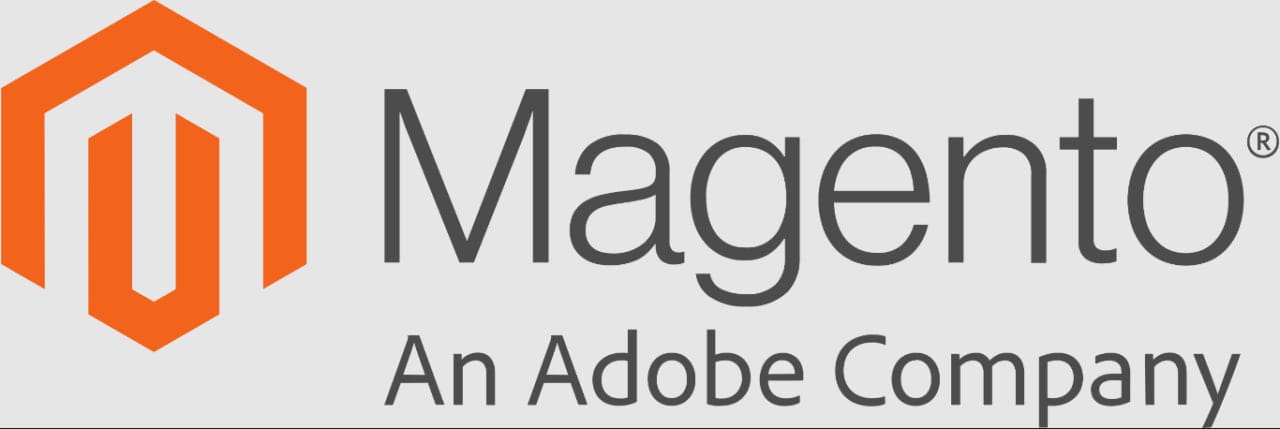
Description:
Magento is a robust and feature-rich e-commerce platform suitable for larger projects and enterprises. It offers a highly customizable solution for businesses looking to scale and expand their online presence.
Advantages:
- Exceptional scalability and flexibility
- Wide range of built-in features
- Ideal for complex and large product catalogs
- Active developer community
Disadvantages:
- High initial development and maintenance costs
- Steeper learning curve
- Resource-intensive hosting requirements
A Visual Tour of the Interface:
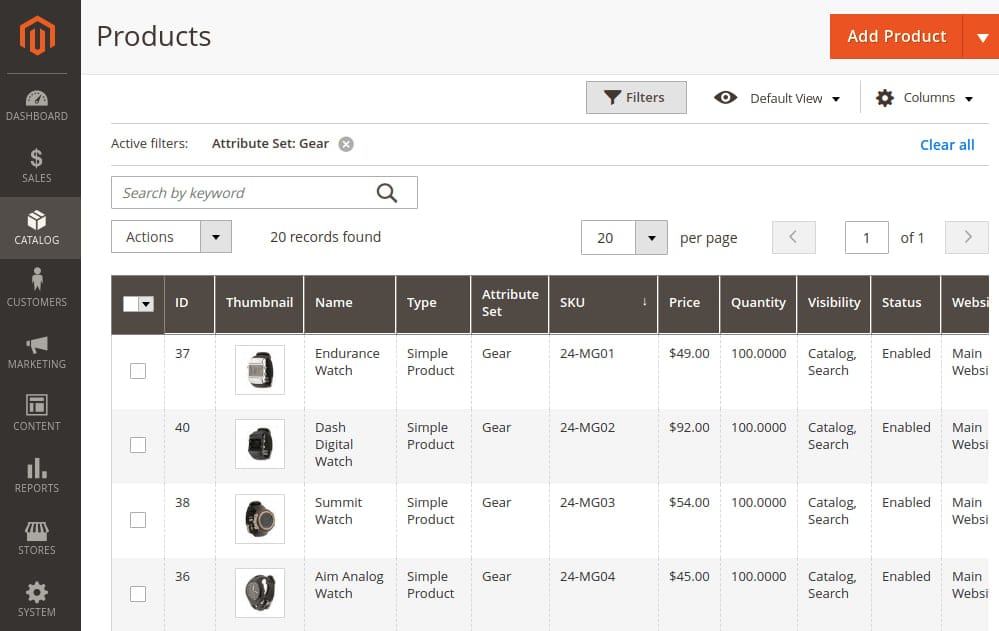
Magento caters to businesses with ambitious growth plans. It excels in terms of scalability and flexibility, making it an ideal choice for enterprises with complex product catalogs and high traffic volumes. Its robust set of built-in features allows you to manage all aspects of your online store effectively.
While Magento offers remarkable capabilities, it comes with some downsides. The initial development and maintenance costs can be significant, especially for smaller businesses. Additionally, the platform has a steeper learning curve, and you may need dedicated resources with Magento expertise to harness its full potential. Resource-intensive hosting requirements are another consideration. To run Magento smoothly, you'll need a powerful hosting solution to handle the demands of your e-commerce site.
Wix

Description:
Wix is a user-friendly website builder known for its simplicity. It's an excellent choice for small businesses and entrepreneurs who want to create an online store quickly and easily.
Advantages:
- Intuitive drag-and-drop interface
- Affordable pricing plans
- Hosting included
- Extensive template library
Disadvantages:
- Limited scalability for larger businesses
- Less customization compared to other platforms
A Visual Tour of the Interface:

Wix's standout feature is its user-friendly, drag-and-drop interface, which simplifies the process of building your online store. It's an affordable option with pricing plans suitable for various budgets. Hosting is included, eliminating the need to seek external hosting services.
Wix offers a library of templates designed specifically for e-commerce, helping you create a visually appealing and functional online store quickly. This is especially advantageous for small businesses and entrepreneurs looking to establish their online presence without extensive technical knowledge. However, Wix has its limitations. It may not be the best choice for larger businesses or those with ambitious growth plans due to limited scalability. Additionally, while it provides a reasonable degree of customization, it may not offer the same level of flexibility as other e-commerce platforms.
GhostCMS

Description:
GhostCMS is a content management system with a focus on scalability and performance. While it's not solely an e-commerce platform, it can be tailored to build scalable online stores.
Advantages:
- High performance and speed
- Ideal for content-driven e-commerce sites
- Customizable with themes and plugins
- Strong blogging features
Disadvantages:
- Limited native e-commerce functionality
- Requires technical expertise for setup
A Visual Tour of the Interface:
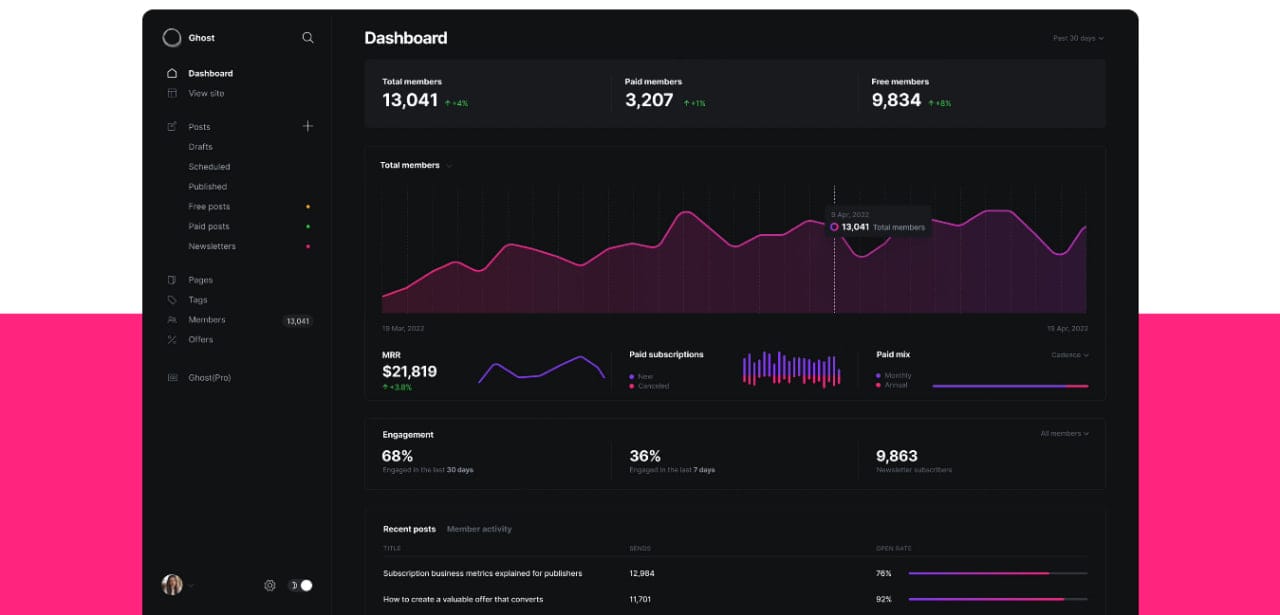
GhostCMS is renowned for its exceptional performance and speed. It's an excellent choice for content-driven e-commerce sites, where blogging and content marketing play a crucial role in the overall strategy. You can customize GhostCMS using themes and plugins to suit your specific needs.
Despite its strengths, GhostCMS has limitations when it comes to native e-commerce functionality. While it can be adapted for online stores, it may not provide the same level of e-commerce features as dedicated platforms like Shopify or WooCommerce. Setting up GhostCMS may require technical expertise, which could be a drawback for beginners.
Essential Aspects When Choosing a Platform
Now, let's delve deeper into the crucial factors to consider when choosing the right e-commerce platform for your business:
Price:
The cost of your chosen platform is a fundamental consideration. While some platforms like WooCommerce are free to use, others, such as Shopify, require monthly subscription fees. Additionally, factor in transaction fees, hosting costs, and any additional expenses for customizations or plugins. Carefully analyze your budget and choose a platform that aligns with your financial resources.
Scalability:
Consider the growth potential of your business. Will your product catalog expand? Are you anticipating an increase in website traffic? Choose a platform that can scale with your business's needs. Platforms like Magento and WooCommerce offer excellent scalability options for businesses planning substantial growth.
Customization:
Evaluate the level of customization your e-commerce platform allows. Some platforms provide extensive customization options, enabling you to create a unique online store that stands out from the competition. Others may be more template-driven, limiting your ability to tailor the design and functionality to your precise specifications. Assess your need for customization and choose a platform accordingly.
Integration:
Think about the tools and services your business requires to operate efficiently. Your e-commerce platform should seamlessly integrate with other essential systems, such as payment gateways, inventory management software, and marketing tools. Ensure that your chosen platform offers the necessary integrations to streamline your business processes.
Security:
The security of your online store is paramount. Look for platforms that prioritize security measures, including SSL certificates, data encryption, and regular security updates. A breach in security can have severe consequences, so choose a platform that takes this aspect seriously.
Support and Documentation:
Consider the level of support and documentation provided by the platform. A responsive support team can be invaluable when you encounter issues or have questions. Additionally, comprehensive documentation, tutorials, and a vibrant user community can make it easier for you to navigate and optimize your e-commerce website.
Conclusion
In the fast-paced world of e-commerce, choosing the right platform for your online store is a decision of paramount importance. In this comprehensive guide, we have delved into the nuances of five prominent e-commerce tools: Shopify, WooCommerce for Wordpress, Magento, Wix and GhostCMS. We've examined their features, advantages, and drawbacks to provide you with a comprehensive understanding of which platform aligns best with your business aspirations.
It's crucial to recognize that the choice of an e-commerce platform is not a one-size-fits-all decision. Your selection should be a reflection of your unique business goals, budget, and technical expertise. Each of the platforms we explored offers a distinctive set of advantages, and it's your responsibility to match those strengths with your specific needs.
Shopify's user-friendly interface, extensive app store, and robust security make it a compelling option for entrepreneurs of all levels of experience. However, its monthly subscription fees and limited customization for advanced users are aspects to consider.
WooCommerce for Wordpress is a highly customizable, cost-effective solution with a vast ecosystem of plugins and themes. It's particularly well-suited for businesses already familiar with WordPress. Yet, managing hosting and security responsibilities may require additional technical know-how.
Magento shines in its scalability, flexibility, and robust feature set, making it ideal for ambitious enterprises. Nevertheless, its high initial costs, steep learning curve, and resource-intensive hosting requirements may pose challenges for smaller businesses.
Wix stands out for its user-friendly drag-and-drop interface, affordability, and included hosting. It's an excellent choice for small businesses and those seeking a quick start. However, it may not meet the scalability needs of larger enterprises.
GhostCMS, known for its exceptional performance and speed, excels in content-driven e-commerce scenarios. While it offers customization options, its native e-commerce functionality may fall short of dedicated platforms. Setting up GhostCMS might require technical expertise.
Now, as you embark on your journey to establish an online store, remember that success in e-commerce is not solely determined by the platform you choose. It also hinges on your dedication, marketing strategies, and the quality of products or services you offer. Leverage the insights gained from this guide to make an informed decision, and don't hesitate to seek further advice and assistance as you navigate the e-commerce landscape.
In conclusion, building a thriving online store requires meticulous planning, continuous adaptation, and a robust e-commerce platform as your foundation. By making an educated choice, aligning your platform with your business goals, and staying committed to delivering value to your customers, you can set your e-commerce venture on the path to long-term success.
Additional Resources
For further information and guidance on building your e-commerce website, explore the following additional resources:
-
The 15 Best Ecommerce Platforms to Consider for Your Online Store
How To Build An eCommerce Website (2023 Guide)
10 e-commerce marketing strategies for your business
By taking these steps and staying informed, you'll be well on your way to building a thriving online store that meets your customers' needs and drives your business's success.
You can also read this article about How To Create Websites 10X Faster Using AI And No-code








